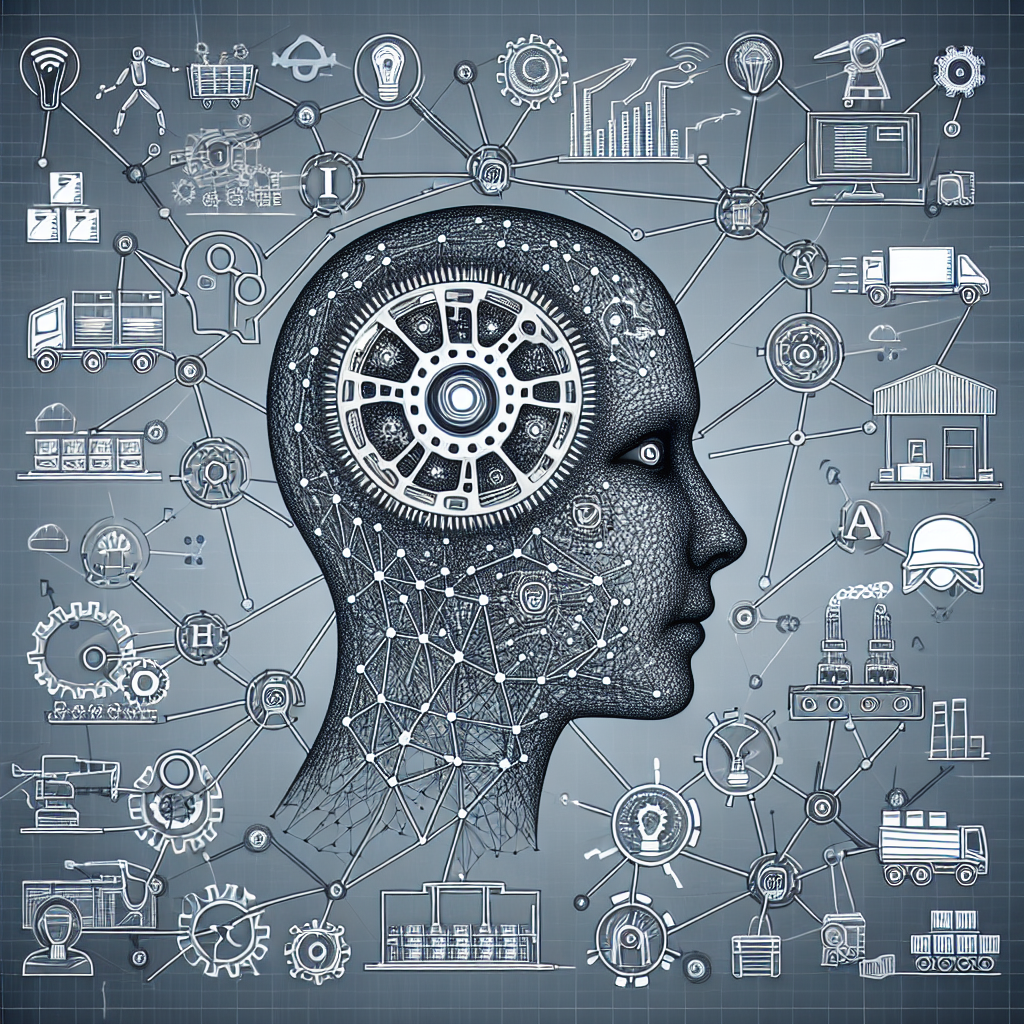In recent years, artificial intelligence (AI) has been increasingly integrated into various industries, and the manufacturing sector is no exception. AI-driven supply chain resilience in manufacturing has become a critical aspect of ensuring operational efficiency and continuity in the face of disruptions such as natural disasters, geopolitical events, and pandemics. By leveraging AI technologies, manufacturers can better anticipate, mitigate, and respond to supply chain disruptions, thereby enhancing their resilience and competitiveness in the global market.
What is AI-driven supply chain resilience in manufacturing?
AI-driven supply chain resilience in manufacturing refers to the use of artificial intelligence technologies to enhance the resilience of manufacturing supply chains. This involves the integration of AI tools such as machine learning, predictive analytics, and natural language processing to optimize supply chain processes, improve decision-making, and mitigate risks. By analyzing vast amounts of data in real-time, AI can help manufacturers identify potential disruptions, forecast demand, optimize inventory levels, and streamline production processes, thus enabling them to respond more effectively to unexpected events and maintain business continuity.
How does AI improve supply chain resilience in manufacturing?
There are several ways in which AI can help manufacturers enhance their supply chain resilience:
1. Predictive analytics: AI-powered predictive analytics can analyze historical data, market trends, and external factors to forecast demand, identify potential disruptions, and optimize inventory levels. By accurately predicting future demand and supply chain risks, manufacturers can proactively adjust their production schedules, inventory levels, and distribution strategies to mitigate the impact of disruptions and ensure uninterrupted operations.
2. Real-time monitoring: AI technologies can monitor supply chain activities in real-time, enabling manufacturers to quickly detect any deviations from the planned schedule, identify bottlenecks, and take corrective actions. By continuously monitoring key performance indicators (KPIs) such as lead times, cycle times, and inventory levels, manufacturers can promptly address any issues that may affect their supply chain resilience and operational efficiency.
3. Autonomous decision-making: AI-powered decision support systems can analyze complex data sets, evaluate multiple scenarios, and recommend optimal decisions in real-time. By automating routine decision-making processes, manufacturers can improve the speed and accuracy of their responses to supply chain disruptions, reduce human errors, and increase overall operational efficiency.
4. Supply chain optimization: AI technologies can optimize various aspects of the supply chain, such as production planning, inventory management, and transportation logistics. By leveraging AI algorithms to optimize production schedules, minimize inventory costs, and optimize transportation routes, manufacturers can enhance their supply chain resilience, reduce operational costs, and improve customer satisfaction.
5. Risk management: AI can help manufacturers identify and assess potential supply chain risks, such as supplier disruptions, demand fluctuations, and geopolitical events. By analyzing historical data, market trends, and external factors, AI-powered risk management tools can provide manufacturers with early warning signals, scenario analysis, and risk mitigation strategies to protect their supply chains from unexpected events.
Overall, AI-driven supply chain resilience in manufacturing enables manufacturers to proactively manage risks, optimize operations, and enhance their competitiveness in the global market by leveraging the power of artificial intelligence to improve decision-making, optimize processes, and mitigate disruptions.
FAQs:
Q: What are the key benefits of AI-driven supply chain resilience in manufacturing?
A: The key benefits of AI-driven supply chain resilience in manufacturing include improved forecasting accuracy, optimized inventory levels, enhanced operational efficiency, reduced lead times, and increased customer satisfaction. By leveraging AI technologies, manufacturers can better anticipate, mitigate, and respond to supply chain disruptions, thereby enhancing their resilience and competitiveness in the global market.
Q: How can manufacturers implement AI-driven supply chain resilience in their operations?
A: To implement AI-driven supply chain resilience in manufacturing, manufacturers can start by identifying their key supply chain challenges, goals, and KPIs. They can then evaluate various AI technologies, such as machine learning, predictive analytics, and natural language processing, to determine which tools are best suited to their needs. Manufacturers can also collaborate with AI vendors, consultants, and experts to develop custom AI solutions, integrate AI technologies into their existing systems, and train their employees on how to use AI tools effectively.
Q: What are the potential challenges of implementing AI-driven supply chain resilience in manufacturing?
A: Some potential challenges of implementing AI-driven supply chain resilience in manufacturing include data quality issues, lack of skilled AI talent, resistance to change, and high implementation costs. Manufacturers may also face challenges related to data privacy, security, and regulatory compliance when using AI technologies to optimize their supply chain operations. However, by addressing these challenges proactively, manufacturers can successfully implement AI-driven supply chain resilience and reap the benefits of improved operational efficiency, reduced costs, and enhanced competitiveness.
In conclusion, AI-driven supply chain resilience in manufacturing is a critical aspect of ensuring operational efficiency and continuity in today’s volatile and uncertain business environment. By leveraging AI technologies to optimize supply chain processes, improve decision-making, and mitigate risks, manufacturers can enhance their resilience, competitiveness, and long-term sustainability in the global market.

